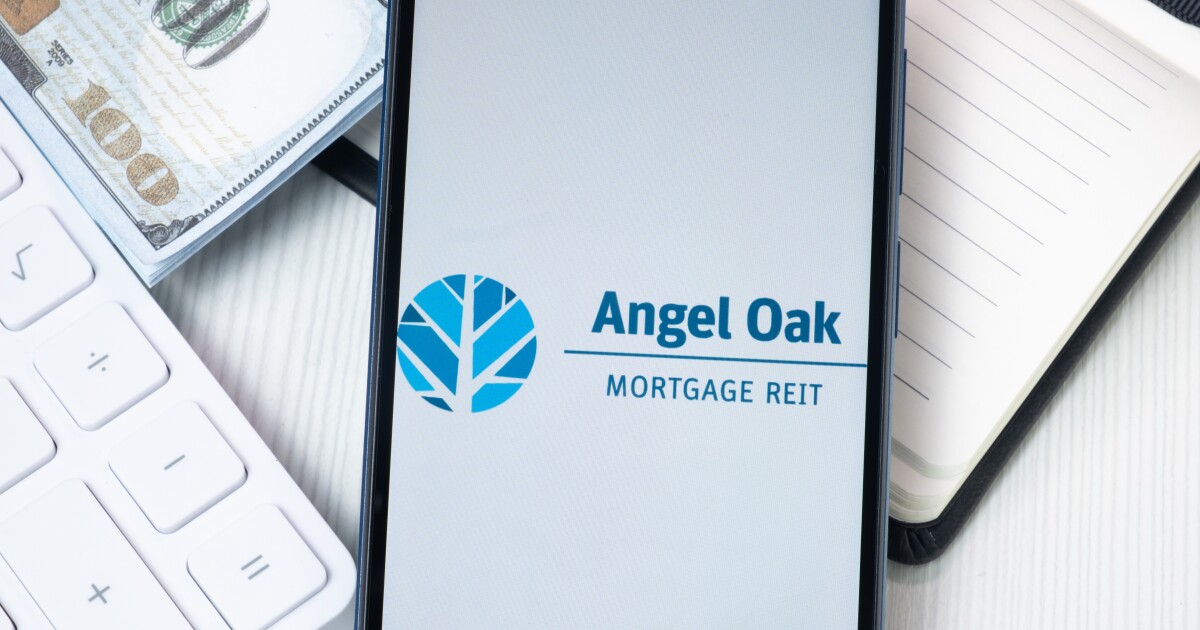
Angel Oak Mortgage REIT emerged from the first quarter's market turbulence with a gain under standard accounting principles despite the challenging conditions.
The real estate investment trust reported $20.53 million in net income in the quarter, up from $12.87 million a year earlier and a $15.06 million loss
The real estate investment trust beat a S&P Capital IQ consensus estimate that it would earn $6.14 million.
The company's earnings provide a window into the private secondary market for loans outside a standard "nonqualified mortgage" definition, which has been an important product sector for lenders facing limited refinancing and profitability challenges. Borrowers with nontraditional income typically pay up for non QM.
But interest from investors buying residential mortgage-backed securities has fluctuated recently amid
"Overall, securitization markets have been resilient with a deep pool of market participants willing to participate in the market. That being said, there has been some variation in execution levels in terms of spreads depending on the timing with data points and/or trade announcements," he said.
The company did not securitize during the first quarter but has since completed a transaction.
"What we saw, even with a lot of the tariff issues and volatility in equity markets and the bond markets, there was no illiquidity. So that's number one, right? We could at least do our securitization," Prabhu said.
Angel Oak was the sole participant in its AOMT 2025-4 securitization, which we closed shortly after quarter end, and provided the company with capital to continue to purchase new loans, he said. The securitization released $24.7 million in cash and also paid down $242.4 million in warehouse debt.
"Spreads probably went from 130, 135 at the beginning of the year all the way to the first quarter and we printed that deal at 180," said Prabhu. Subsequent spreads have been in the 150-160 range, he said.
Weighted averages for the securitization were 7.5% for the average coupon, 70.9% for the loan-to-value ratio and 752 for the credit score. Interest income for the first quarter was $32.9 million and net interest income was $10.1 million,
"The AOMT securitization shelf has an exceptional credit performance history and has proven its ability to execute in choppy markets. We've laid a strong foundation by making an intentional effort to move up and credit for our loan originations and purchases," Chief Financial Officer Brandon Filson said during the call.
In contrast to the fourth quarter of last year, when volatility led to a valuation decrease, this year's first quarter included $18.7 million of unrealized gains from the company's securitization and loan portfolios.
The quarter-end weighted averages coupon rate and funding cost for the company's loan and securitization trust portfolio coupon were 5.6% and 4.3%, respectively. Following the AOMT 2025.4 securitization, the company expects the portfolio's WAC to increase to 5.8%.
"The securitization market remains active, and we plan to continue to access it via our methodical securitization strategy," Filson said.
One trend that's been helpful as securitization market conditions have become more challenging is that mortgage rates have remained in a range that has
"When the rates come down from the demand side, insurance company demand may slow down," he said, reiterating a warning made in other earnings calls.
Executives showed less concern about the prepayment risk that could result from a drop in rates.
"Our securitized loan and RMBS portfolios are weighted towards loans that are well below current rates, reducing or eliminating a homeowners incentive to refinance," Filson said.



